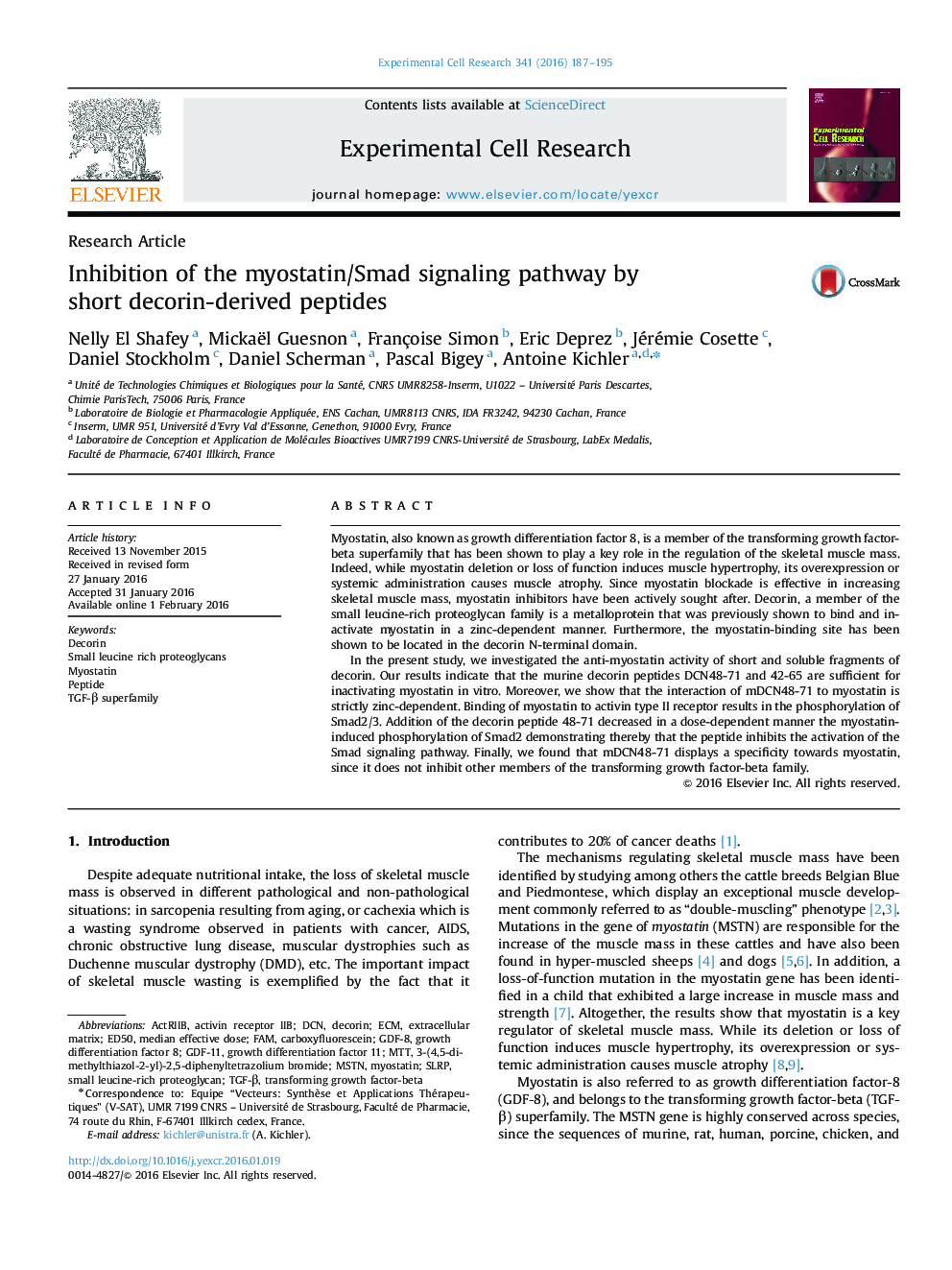| کد مقاله | کد نشریه | سال انتشار | مقاله انگلیسی | نسخه تمام متن |
|---|---|---|---|---|
| 2130000 | 1086516 | 2016 | 9 صفحه PDF | دانلود رایگان |
• Decorin peptides DCN48-71 and 42-65 bind to myostatin in a zinc-dependent manner.
• The decorin peptides can inhibit the myostatin induced activation of Smad2/3.
• Other members of the TGF-β family are not inhibited by the DCN peptides.
Myostatin, also known as growth differentiation factor 8, is a member of the transforming growth factor-beta superfamily that has been shown to play a key role in the regulation of the skeletal muscle mass. Indeed, while myostatin deletion or loss of function induces muscle hypertrophy, its overexpression or systemic administration causes muscle atrophy. Since myostatin blockade is effective in increasing skeletal muscle mass, myostatin inhibitors have been actively sought after. Decorin, a member of the small leucine-rich proteoglycan family is a metalloprotein that was previously shown to bind and inactivate myostatin in a zinc-dependent manner. Furthermore, the myostatin-binding site has been shown to be located in the decorin N-terminal domain.In the present study, we investigated the anti-myostatin activity of short and soluble fragments of decorin. Our results indicate that the murine decorin peptides DCN48-71 and 42-65 are sufficient for inactivating myostatin in vitro. Moreover, we show that the interaction of mDCN48-71 to myostatin is strictly zinc-dependent. Binding of myostatin to activin type II receptor results in the phosphorylation of Smad2/3. Addition of the decorin peptide 48-71 decreased in a dose-dependent manner the myostatin-induced phosphorylation of Smad2 demonstrating thereby that the peptide inhibits the activation of the Smad signaling pathway. Finally, we found that mDCN48-71 displays a specificity towards myostatin, since it does not inhibit other members of the transforming growth factor-beta family.
Figure optionsDownload high-quality image (288 K)Download as PowerPoint slide
Journal: Experimental Cell Research - Volume 341, Issue 2, 15 February 2016, Pages 187–195
